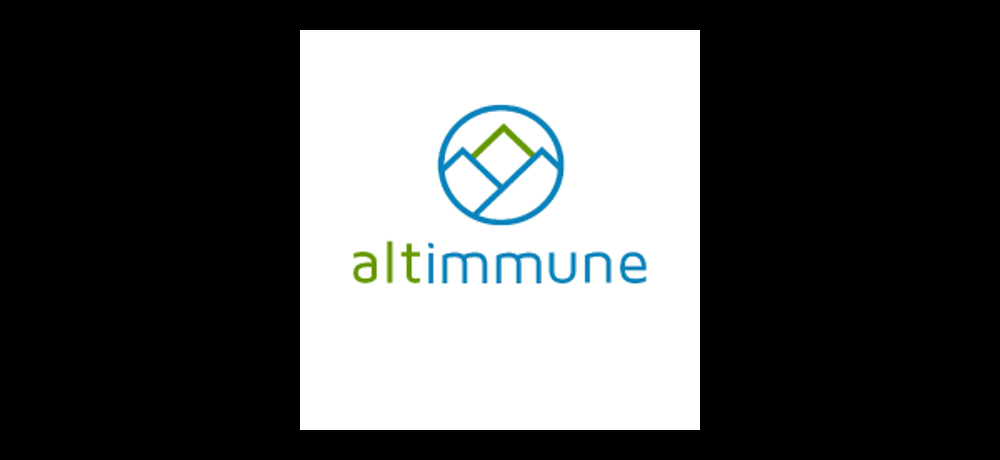Altimmune presented positive data on pemvidutide's efficacy in MASH treatment at the EASL Congress, suggesting high resolution rates.
Quiver AI Summary
Altimmune, Inc. announced new analyses at the EASL Congress in Amsterdam, showcasing the MASH Resolution Index (MASHResInd) algorithm, developed by Dr. Rohit Loomba, to predict resolution in patients with metabolic dysfunction-associated steatotic liver disease (MASLD) treated with pemvidutide, a dual receptor agonist. The analyses indicated that the algorithm, which incorporates various non-invasive tests, showed a high probability of MASH resolution in subjects receiving pemvidutide over a 24-week treatment period. Encouraging results were highlighted, with over 90% response rates at certain doses, compared to 22.2% in the placebo group. Altimmune's Chief Medical Officer, Dr. Scott Harris, expressed excitement about these findings, especially as the company anticipates important results from their ongoing IMPACT Phase 2b Trial of pemvidutide.
Potential Positives
- Altimmune presented new analyses at the EASL Congress, highlighting significant findings regarding the MASH Resolution Index (MASHResInd) and its efficacy in predicting MASH resolution with pemvidutide treatment.
- The data showed that treatment with pemvidutide led to a high rate of MASHResInd responses of over 90% in patients at certain dose levels, outperforming the placebo group.
- Altimmune's upcoming IMPACT Phase 2b Trial results are on track to be reported soon, generating excitement and confidence in pemvidutide's potential based on the positive preliminary findings.
Potential Negatives
- Despite positive analyses, the press release does not provide specific details regarding the efficacy of pemvidutide beyond early indicators, which may raise concerns about the robustness of the data presented.
- The press release focuses on interim results and models rather than definitive outcomes, which might lead investors and stakeholders to question the readiness and ultimate success of pemvidutide's approval and market potential.
- While the results appear promising, the reliance on a newly developed composite score (MASHResInd) raises potential questions about the standardization and acceptance of this metric in wider clinical practice.
FAQ
What is Altimmune's pemvidutide and its purpose?
Pemvidutide is a peptide-based dual receptor agonist developed by Altimmune for treating obesity, MASH, and alcohol-related liver diseases.
What does the MASH Resolution Index (MASHResInd) measure?
The MASHResInd measures potential liver histology improvement using non-invasive tests to predict MASH resolution in treated patients.
What were the key findings presented at the EASL Congress?
The analyses showed that pemvidutide achieved significant MASHResInd responses in a high percentage of treated subjects compared to placebo.
Who developed the MASHResInd algorithm?
Dr. Rohit Loomba from the University of California San Diego developed the MASHResInd algorithm for predicting MASH resolution.
What is the current status of the IMPACT Phase 2b Trial?
Altimmune's IMPACT Phase 2b Trial is on track to report results this quarter, focusing on the effectiveness of pemvidutide.
Disclaimer: This is an AI-generated summary of a press release distributed by GlobeNewswire. The model used to summarize this release may make mistakes. See the full release here.
$ALT Insider Trading Activity
$ALT insiders have traded $ALT stock on the open market 1 times in the past 6 months. Of those trades, 1 have been purchases and 0 have been sales.
Here’s a breakdown of recent trading of $ALT stock by insiders over the last 6 months:
- GREGORY L WEAVER (Chief Financial Officer) purchased 10,000 shares for an estimated $51,996
To track insider transactions, check out Quiver Quantitative's insider trading dashboard.
$ALT Hedge Fund Activity
We have seen 97 institutional investors add shares of $ALT stock to their portfolio, and 72 decrease their positions in their most recent quarter.
Here are some of the largest recent moves:
- AMERIPRISE FINANCIAL INC added 1,378,854 shares (+35.6%) to their portfolio in Q4 2024, for an estimated $9,941,537
- CAPITAL FUND MANAGEMENT S.A. removed 726,829 shares (-100.0%) from their portfolio in Q4 2024, for an estimated $5,240,437
- VANGUARD GROUP INC removed 552,246 shares (-11.1%) from their portfolio in Q4 2024, for an estimated $3,981,693
- UBS GROUP AG added 437,100 shares (+154.8%) to their portfolio in Q4 2024, for an estimated $3,151,491
- SUSQUEHANNA INTERNATIONAL GROUP, LLP removed 426,043 shares (-46.0%) from their portfolio in Q4 2024, for an estimated $3,071,770
- GOLDMAN SACHS GROUP INC removed 406,655 shares (-43.6%) from their portfolio in Q4 2024, for an estimated $2,931,982
- MORGAN STANLEY removed 373,763 shares (-28.8%) from their portfolio in Q4 2024, for an estimated $2,694,831
To track hedge funds' stock portfolios, check out Quiver Quantitative's institutional holdings dashboard.
Full Release
GAITHERSBURG, Md., May 08, 2025 (GLOBE NEWSWIRE) -- Altimmune, Inc. (Nasdaq: ALT), a late clinical-stage biopharmaceutical company developing next-generation peptide-based therapeutics for liver and cardiometabolic diseases, today announced the presentation of new analyses at the European Association for the Study of the Liver (EASL) Congress™ in Amsterdam, The Netherlands. The presentation focuses on the use of the MASH Resolution Index (MASHResInd) algorithm to predict MASH resolution on biopsy in patients treated with pemvidutide, Altimmune’s 1:1 GLP-1/glucagon dual receptor agonist.
Developed by Dr. Rohit Loomba, Professor of Medicine, Director of Hepatology, and Vice Chief, Division of Gastroenterology at University of California San Diego, MASHResInd is a composite score incorporating multiple non-invasive tests, including MRI proton-density-fat-fraction (MRI-PDFF), alanine aminotransferase (ALT), and aspartate aminotransferase (AST) levels for predicting MASH resolution on biopsy. Applied to datasets from a previously completed trial with pemvidutide in subjects with metabolic dysfunction-associated steatotic liver disease (MASLD), the MASHResInd predicted a high probability that MASH resolution would occur with pemvidutide treatment.
“These findings underscore the potential of pemvidutide to achieve meaningful histologic improvements in MASH using non-invasive, reproducible biomarkers,” said Dr. Loomba. “We are encouraged by the significant response in the MASHResInd model, which may suggest a high likelihood of achieving MASH resolution in Altimmune’s IMPACT Phase 2b Trial of pemvidutide.”
Key Data Highlights:
The composite MASHResInd score is a robust, non-invasive marker for liver histology improvement, with potential application across clinical research and practice. In the analyses presented at EASL, 24 weeks of treatment with pemvidutide resulted in MASHResInd responses (defined as an index ≥ -0.67) in 69.2%, 92.3% and 90.9% of subjects receiving 1.2 mg (p<0.05), 1.8 mg (p<0.001), and 2.4 mg (p<0.001) of pemvidutide, respectively, compared with 22.2% in subjects receiving placebo.
“This analysis of patients from our study of pemvidutide in MASLD further reinforces our excitement around the upcoming IMPACT readout, which remains on track to be reported this quarter,” added Scott Harris, M.D., Chief Medical Officer of Altimmune. “Our MASLD trial achieved class-leading reductions in liver fat content, which is recognized to be a primary driver for MASH resolution and fibrosis improvement. The MASHResInd response rates greater than 90% at the 1.8 and 2.4 mg pemvidutide doses give us further confidence in the ability of pemvidutide to achieve statistical significance in the 24-week biopsy-based endpoints of the IMPACT Trial.”
Presentation Details
|
Title: MASH resolution index, a novel, highly sensitive non-invasive measure of histologic improvement, predicts high rates of MASH resolution with pemvidutide treatment of metabolic dysfunction-associated steatohepatitis (MASH) Presenter: Shaheen Tomah, M.D., Director, Clinical Development, Altimmune |
|
Poster Tour Presentation:
|
|
General Poster Session Presentation:
|
The posters presented at the EASL International Liver Congress™ 2025 will be accessible on the Events section of the Altimmune website.
About Pemvidutide
Pemvidutide is a novel, investigational, peptide-based 1:1 GLP-1/glucagon dual receptor agonist in development for the treatment of obesity, MASH, alcohol use disorder (AUD) as well as alcohol liver disease (ALD). Activation of the GLP-1 and glucagon receptors is believed to mimic the complementary effects of diet and exercise on weight loss, with GLP-1 suppressing appetite and glucagon increasing energy expenditure. Glucagon is also recognized as having direct effects on hepatic fat metabolism, which is believed to lead to rapid reductions in levels of liver fat and serum lipids. In clinical trials to date, once-weekly pemvidutide has demonstrated compelling weight loss with class-leading lean mass preservation, and robust reductions in triglycerides, LDL cholesterol, liver fat content and blood pressure. The U.S. FDA has granted Fast Track designation to pemvidutide for the treatment of MASH. Pemvidutide recently completed the MOMENTUM Phase 2 obesity trial and is being studied in the ongoing IMPACT Phase 2b MASH trial. IND applications in AUD and ALD have received FDA clearance with Phase 2 trials to commence in mid-2025.
About Altimmune
Altimmune is a clinical-stage biopharmaceutical company focused on developing innovative next-generation peptide-based therapeutics. The Company is developing pemvidutide, a GLP-1/glucagon dual receptor agonist for the treatment of obesity, MASH, alcohol use disorder as well as alcohol related liver disease. For more information, please visit www.altimmune.com .
Follow @Altimmune, Inc. on
LinkedIn
Follow @AltimmuneInc on
X
Company Contact:
Greg Weaver
Chief Financial Officer
Phone: 240-654-1450
[email protected]
Investor Contact:
Lee Roth
Burns McClellan
Phone: 646-382-3403
[email protected]
Media Contact:
Jake Robison
Inizio Evoke Comms
Phone: 619-849-5383
[email protected]
This press release was published by a CLEAR® Verified individual.





